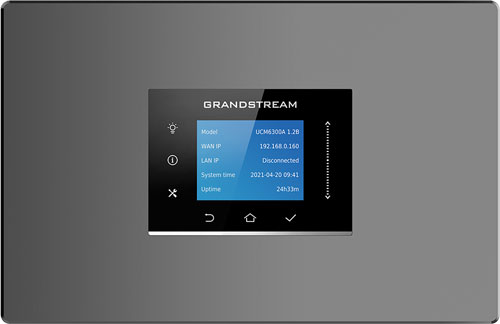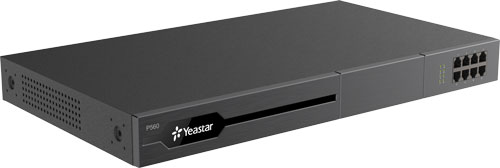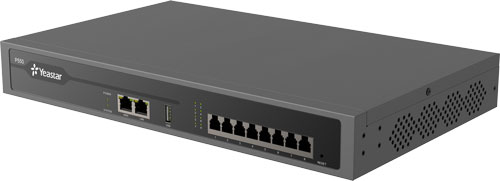In last week’s blog, we explained the difference between on-premise VoIP phone systems and cloud VoIP phone systems. Each type has its advantages and disadvantages.
But sometimes just a premise system or just a cloud system isn’t enough.
Sound familiar? You should know about hybrid VoIP phone systems.
When searching for hybrid VoIP solutions, you will find two types:
- A system that incorporates analog devices and phone lines into a VoIP phone system
- A system that uses elements of both premise-based and cloud-based phone systems or services
In this blog, we’re going to be talking about the second type: how to use both on-premise VoIP and hosted VoIP in one system.
If you’d like to know about the first type, check out our blog, “Can You Use Analog Phones on a VoIP Phone System?” In this blog, we explain how to bring analog devices into a VoIP phone system, so you can extend the lifetime of existing equipment and migrate to a modern phone system in your own time. We also discuss how to integrate analog phone lines and VoIP phone systems in our blog, “Can You Use a VoIP Phone System with Analog Phone Lines?” Spoiler alert: The answer to both questions is Yes.
In this blog, however, we’re going to clearly explain why businesses choose to use a hybrid phone system with both premise and cloud integrated into one unified VoIP phone system.
Let’s get into it!

An Introduction to Hybrid VoIP Phone Systems
A hybrid VoIP phone system is defined by the first word: Hybrid. In this case, hybrid means the combination of multiple phone system types into one communications ecosystem. Because there are two types of VoIP phone system — premise-based and cloud-based — a hybrid VoIP ecosystem is a combination of those two.
Hybrid phone systems are complex and there are many more arrangements than can be handled in a single blog. So we’re just giving you examples of how businesses use hybrid VoIP phone systems for their communications.
There are three primary reasons why businesses choose to establish a hybrid VoIP phone system with integrated premise and cloud systems:
- Redundancy
- Remote workers
- Microsoft Teams integration
Let’s examine each of these.

Using a Hybrid VoIP Phone System for Redundancy
Your business communications are critically important. So you want to ensure as close to 100% up-time as you can.
While on-premise phone systems and cloud phone services are both highly reliable solutions, neither is foolproof.
Redundancy, in tech terms, refers to having multiple systems or devices for a single application so when one fails, the other is available. It is extremely unlikely that all the systems or devices will fail at the same time.
With a VoIP phone system, it might work like this: You use an on-premise VoIP phone system as your primary communications solution, but you subscribe to a cloud phone service, paying for the workers who use their phones the most. That way, if your VoIP phone system cuts out for whatever reason, you have a backup ready to switch on in an instant.
The major advantage of a redundant VoIP phone system is protection against system failure. We’ve all read the news stories about some minor tech glitch causing major havoc — do you want to have all your eggs in one basket?
There are two primary drawbacks to setting up a redundant system: 1) You’re paying for two solutions to the same problem. 2) You have to setup and manage two systems, including ensuring device interoperability between the two platforms.
But if you absolutely need ultra-reliable communications and can afford it, a hybrid VoIP phone system in which you have a primary communications system with a secondary backup ready to go — that’s a great solution.

Using a Hybrid VoIP Phone System to Bring in Remote Workers
An increasingly common workplace scenario is the hybrid worker — appropriate for this blog! A hybrid worker is someone who works part of the time from home and part of the time in the office. And remote workers — who never come to the office at all — are more and more common, too.
How do you keep your communications secure while allowing hybrid workers to keep their workplace phone number, calendar, contact list, and so on?
While many on-premise phone systems and cloud phone services support secure account access from anywhere across any device, this is not always the case. You might be a SMB whose communications needs are comparatively simple — but you want to attract new workers who expect to be able to have a hybrid work life. Your on-premise VoIP solution has been working well for years, but you need to expand.
An example of this arrangement is offered by the Grandstream UCM6300 Series of IP PBXs with Grandstream UCM RemoteConnect.
Grandstream is one of the world leaders in VoIP communications solutions. Their systems combine cost effectiveness with professional performance and security.
The UCM6300 Series is very widely used as an on-premise VoIP communications system with options for a unified communications system (UCM6300) or an audio-only system (UCM6300A).
To securely integrate remote workers, Grandstream developed UCM RemoteConnect. This is a cloud-based NAT firewall traversal service that lets remote workers securely access a UCM6300 system. We cover UCM RemoteConnect in depth in our blog, “How to Setup Remote Workers on VoIP Phone Systems.”
Using RemoteConnect, workers can take audio and video calls, join meetings, and basically do everything as if they were on the UCM6300 ecosystem in the office. They can do this all using the Grandstream Wave web app or the Wave app for Android and iOS. And it has security built-in from the get-go with the NAT firewall traversal, plus advanced system and device monitoring and reports, real-time alerts, and much more.
So a Grandstream UCM6300 VoIP phone system with UCM RemoteConnect lets you bring in hybrid and remote workers while retaining the control and cost effectiveness that characterize premise-based VoIP systems.

VoIP Phone System Integration with Microsoft Teams
Microsoft 365 is widely used by businesses across the world. Part of Microsoft 365 is Microsoft Teams, which has grown from a corporate chat client to a full-fledged unified communications application.
While Microsoft Teams does offer VoIP telephony support, many companies prefer to have their communications separate from Teams. You might have your phone system already set up — why change? You might like the feature offerings better somewhere else. Teams might be more expensive for your needs. There are many other reasons why.
So you have separate communications system. But it’d be nice to be able to integrate your VoIP communications with Teams, wouldn’t it?
Many VoIP platforms now offer Microsoft Teams integration.
Let’s use the Yeastar P-Series Phone Systems as an example. Yeastar makes affordable, versatile, on-premise IP PBXs that are widely used by businesses around the world. They give you control of your communications with support for over 270 IP phone models, SIP trunk interoperability, and more.
With the P-Series, Yeastar offers Teams integration so you can take and manage calls from your Teams account within the Yeastar Linkus UC client ecosystem. You get both your Teams and your corporate contact lists, voicemails, and more. You can get in touch with both Teams and non-Teams contacts. Best of all, you don’t need a separate Teams Phone license.
So with a hybrid on-premise and Microsoft Teams phone system like Yeastar offers, you get the best of having your own VoIP phone system while being able to work with Teams within that system. Sound pretty good to us!
And in fact there are other similar hybrid arrangements with other platforms. For example, 3CX, a popular and widely used software premise-based VoIP phone system, offers integration with WhatsApp.

